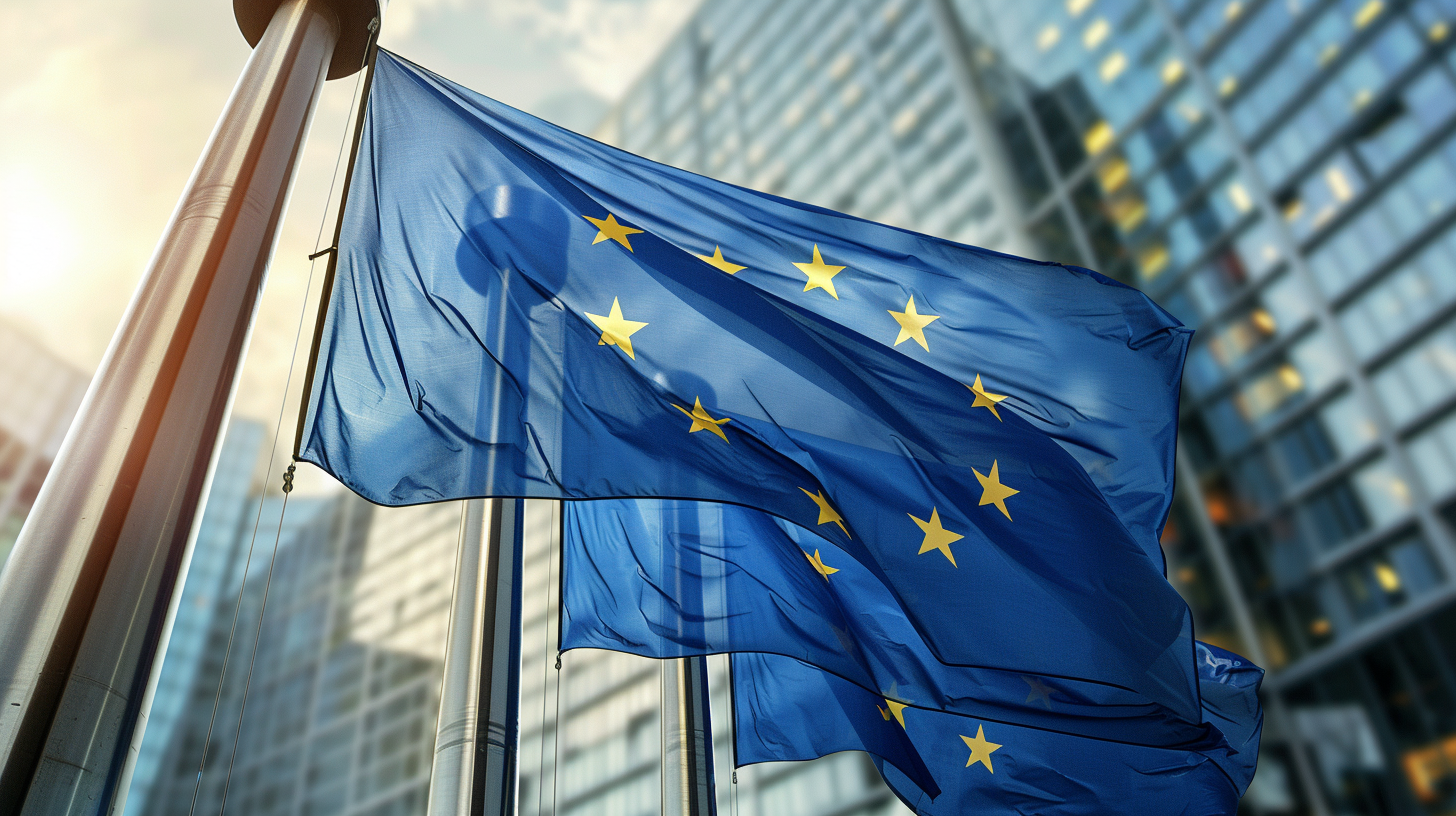Table of Contents Show
As we stand at the crossroads, the European Union faces a future that may either weave its member states into a tighter fabric or see it unraveled by divergent interests. We’re exploring the paths of deeper integration, the allure of expansion, and the specter of fragmentation. Each direction offers unique opportunities and challenges that could redefine the continent’s destiny. Beyond the economic implications, the social, cultural, and technological dimensions of these choices will shape the lives of millions. Join us as we unpack these complex issues, inviting a broader understanding of what lies ahead for Europe.
Key Takeaways
- Integration can enhance the EU’s global influence and economic stability while addressing internal divisions.
- Economic policies must balance growth with addressing disparities to prevent fragmentation.
- Expansion offers opportunities for increased security and cultural integration but poses challenges to consensus.
- Political and external pressures risk fragmenting the EU without cohesive governance and shared values.
The Current State of the EU
Currently, the European Union faces a complex array of challenges, reflecting both internal divisions and external pressures. We’re maneuvering through a period where the very fabric of our unity is tested by economic disparities, political divergences, and a rising wave of nationalism. These trials aren’t just abstract concepts; they’re real issues affecting our daily lives, from the job market to the very essence of our freedoms.
We’ve seen how member states grapple with differing views on migration, fiscal policies, and sovereignty. It’s a delicate balance, maintaining the benefits of integration while respecting each nation’s right to self-determination. Yet, amid these challenges, we’re reminded of the strength found in our diversity. It’s this diversity that has propelled us through decades of peace and prosperity, a confirmation to the vision of a united Europe.
However, we’re also facing external pressures that test our resolve. The geopolitical landscape is shifting, with rising tensions and global competition demanding a unified response. It’s clear that we can’t afford to be complacent. Our collective future hinges on our ability to adapt, to stand together in the face of adversity, and to champion the values of freedom and democracy.
As we look ahead, we’re at a crossroads. The decisions we make today will shape the future of the European Union. We’re committed to steering these challenges, fostering dialogue, and finding common ground. It’s through our shared commitment to freedom and unity that we’ll continue to thrive in an ever-changing world.
Deepening Integration: Prospects and Challenges
As we consider the future of the European Union, deepening integration presents both significant opportunities and formidable challenges. We’re at a crossroads where we must balance the pursuit of a more unified future with the preservation of individual freedoms and national sovereignty. This balancing act isn’t just political; it’s a reflection of our collective desire for a Europe that’s both strong and free.
| Opportunities | Challenges |
|---|---|
| Enhanced Economic Stability | Sovereignty Concerns |
| Strengthened Collective Security | Diverse Political Landscapes |
| Increased Global Influence | Economic Disparities |
| Streamlined Decision-Making | Cultural and Linguistic Diversity |
| Improved Crisis Response | Resistance to Further Integration |
We’re mindful that deeper integration can lead to enhanced economic stability. By acting as a single entity, the EU has the potential to wield greater influence on the global stage, offering us a louder voice in international affairs and a stronger position in global markets. Yet, we can’t ignore the challenges. The diversity of our political landscapes and economies raises questions about how we can move forward without leaving any member state behind.
Furthermore, we’re aware that the pursuit of a more integrated Europe must not come at the expense of the freedoms and rights that are the bedrock of our union. As we navigate these challenges, our focus remains on making sure that every step towards deeper integration also moves us closer to a Europe where freedom, prosperity, and solidarity go hand in hand.
The Expansion Debate: Opportunities Ahead
As we look toward the future of the European Union, the debate on expansion presents both significant opportunities and challenges. We’re poised to explore how enlargement policy challenges can be navigated, alongside the potential for stimulating economic growth. It is crucial to ponder how these factors will shape the EU’s trajectory in the coming years.
Enlargement Policy Challenges
We’re facing significant challenges as we navigate the complex terrain of expanding the European Union, yet these hurdles also reveal unparalleled opportunities for growth and cohesion. As we endeavor for a unified future, it’s crucial to recognize the delicate balance between welcoming new members and ensuring they align with our core values of freedom and democracy.
| Challenge | Opportunity |
|---|---|
| Political Divergence | Strengthened Diplomacy |
| Economic Disparities | Cohesive Development |
| Cultural Integration | Richer Diversity |
Embracing expansion means not just extending our borders but deepening the principles that bind us. It’s about creating a space where freedom isn’t just preserved but flourishes, enhancing the European tapestry with each new thread. Together, we can turn these challenges into stepping stones towards a more integrated, vibrant Europe.
Economic Growth Potential
Delving into the potential for economic growth, the expansion of the European Union offers a canvas for unparalleled prosperity and innovation. We’re looking at a future where breaking down barriers doesn’t just mean geographical expansion but embracing an economic dynamism that thrives on diversity and the free flow of ideas, goods, and people. This isn’t just about growing bigger; it’s about growing smarter. By welcoming new members, we’re not only increasing our market size but also enriching our collective pool of resources, talents, and innovative capacities. It’s a win-win scenario where every member stands to gain from shared prosperity. Let’s seize this opportunity to make sure that our union remains a beacon of economic strength and freedom in the world.
Fragmentation Risks: A Closer Look
Exploring the potential for fragmentation within the European Union reveals a complex web of challenges and risks. We’re facing a critical moment where the unity that’s been our strength might become our Achilles’ heel. The rise of nationalist movements across member states isn’t just a whisper of discontent; it’s a roar for autonomy and freedom. These movements question the very fabric of integration, advocating for a return to sovereign powers where countries can steer their own ships without external interference.
We’re also witnessing a strain in the consensus on fundamental issues like migration, climate policies, and defense. The lack of a unified stance not only weakens our position on the global stage but also fuels internal divisions. If we’re not careful, this discord could fracture the solidarity that’s been the cornerstone of our collective achievements.
Additionally, the digital transformation and its uneven adoption across the EU pose another fragmentation risk. While some member states race ahead, others lag, creating disparities that could widen existing gaps. This digital divide threatens to leave parts of our union behind, undermining our efforts to move forward together.
In our pursuit of freedom, we must acknowledge these challenges and work towards solutions that respect our diverse needs while maintaining our unity. Fragmentation isn’t inevitable, but addressing it requires honesty, flexibility, and a commitment to the common good. Let’s embrace our differences, harness our collective strength, and navigate these turbulent waters as one. The future of the European Union depends on our ability to stand together, even as we honor our individual freedoms.
Economic Implications of EU Policies
We’re now turning our focus to how EU policies shape our economic landscape, including their effects on growth, trade dynamics, and the quest for fiscal unity. Understanding how these policies influence not just the economies of member states but also the European Union as a whole. As we explore these points, we’ll uncover the challenges and opportunities that lie ahead for the EU.
Policy Impact on Growth
EU policies greatly influence economic growth, shaping the region’s future prosperity. We’re all aiming for a future where our economies thrive, bolstered by intelligent, forward-thinking policies. Here’s how EU policies are directly impacting our economic growth:
- Innovation and Research Funding: By prioritizing investment in these areas, we’re setting the stage for cutting-edge developments and high-tech job creation.
- Environmental Sustainability: Green policies aren’t just good for the planet; they’re spawning new industries and opportunities in renewable energy sectors.
- Digital Single Market: Streamlining digital operations across borders boosts efficiency, opens new markets, and fosters competition.
It’s clear that the policies we champion today are paving the way for a more prosperous tomorrow. Let’s embrace the change, ensuring our economic landscape is vibrant and diverse.
Trade Dynamics Shifts
The European Union’s policies are fundamentally reshaping trade dynamics, with profound implications for our economy. By negotiating all-encompassing trade agreements, we’re opening doors to new markets and fostering innovation. This approach not only boosts our economic growth but also secures our place in the global market. However, we must tread carefully. Overregulation risks stifling our businesses, particularly small and medium-sized enterprises that are the backbone of our economy. It’s vital we strike a balance, promoting free trade while protecting our interests. As we navigate these changes, let’s champion policies that enhance our freedom to trade, compete, and prosper on the world stage. Our future depends on our ability to adapt and thrive amidst these shifts.
Fiscal Unity Challenges
While addressing trade dynamics offers opportunities, we must also confront the fiscal unity challenges inherent in EU policies. Achieving fiscal unity within the European Union is paramount for a thriving, integrated future, but it’s fraught with complexities. Here’s how we navigate these waters:
- Harmonize Tax Policies – Streamlining tax regulations across member states guarantees a level playing field and reduces fiscal disparities.
- Implement Fiscal Rules – Adopting stringent, yet flexible, fiscal rules can prevent excessive government debt, safeguarding economic stability.
- Enhance Budgetary Oversight – Strengthening the EU’s oversight on national budgets guarantees that fiscal policies align with broader economic goals.
Addressing these challenges head-on is pivotal for our collective freedom to prosper within a unified European market. It’s about striking the right balance between autonomy and coordination.
Political Dynamics and EU Governance
Understanding the political dynamics within the European Union is important for maneuvering its complex governance structure. As we explore this, it’s essential to recognize that the EU’s political landscape is as diverse as its member states. This diversity brings vibrancy but also challenges, particularly in reaching consensus on policies that affect us all. We’ve seen firsthand how political ideologies and national interests can lead to heated debates and, at times, stall progress.
We’re advocating for a governance model that prioritizes flexibility and respects the sovereignty of its member states while maintaining a unified front on issues that require collective action. It’s about finding the right balance between integration and independence, ensuring that the voices of all member states are heard and valued. This approach is not just about preserving our freedom; it’s about enhancing it by creating a more responsive and adaptable EU.
In our pursuit of a more effective governance structure, we must also address the democratic deficit that has been a point of contention. Enhancing transparency and accountability within EU institutions is non-negotiable. We believe that a more democratized EU, where decision-making is as close to its citizens as possible, is the key to fostering trust and cooperation among member states.
As we navigate these political dynamics, let’s remember that our strength lies in our unity and our diversity. By working together, respecting our differences, and focusing on what brings us together, we can make sure that the EU remains a powerful force for freedom, stability, and prosperity.
External Influences on EU Cohesion
Having steered the internal political dynamics of the EU, we now shift our focus to how external factors play a significant role in shaping the Union’s cohesion. It’s evident that outside influences can either strengthen our unity or test it fiercely. We’re all pursuing freedom and prosperity, but these objectives can be challenged by pressures from beyond our borders.
Here’s how external influences are shaping our course:
-
Global economic trends: Economic shifts outside the EU, such as trade wars, sanctions, or new trade alliances, directly impact our economic stability and growth. When our trading partners face economic downturns or when they erect barriers against our products, it affects our own economic health and, consequently, our unity. We’re in this together, striving for a prosperous future for all member states.
-
International security threats: Security challenges, including terrorism and military conflicts near our borders, require a unified response. These threats don’t recognize national boundaries, compelling us to work closely, strengthening our solidarity. Our collective freedom depends on our ability to present a united front against such dangers.
-
Diplomatic relations and alliances: Our relationships with major powers, like the USA, China, and Russia, impact our internal cohesion. Positive diplomatic engagements can reinforce our unity, while tensions may worsen internal divides. We’re dedicated to managing these intricate relationships to safeguard our shared interests and values.
Social and Cultural Dimensions of Integration
Turning our attention to the social and cultural dimensions of integration within the European Union, we’re faced with the dual challenges of preserving cultural identity and endeavoring for social cohesion. We must acknowledge the complex interplay between these aspects as we work towards a more integrated Europe. It’s essential we explore how these factors influence each other and the broader implications for the EU’s future.
Cultural Identity Challenges
We’re facing significant cultural identity challenges as we navigate the social and cultural dimensions of integration within the European Union. As we endeavor for unity, preserving our rich, diverse heritage becomes a balancing act. Our differences are what make us unique, but they also bring about a need for understanding and adaptation. Here’s what we need to focus on:
- Embracing Multilingualism: Encouraging language learning to foster better communication and understanding among member states.
- Cultural Exchange Programs: Facilitating programs that promote cultural exchanges to build mutual respect and appreciation.
- Local Culture Preservation: Supporting initiatives that preserve local traditions and cultures while promoting European identity.
Let’s champion the cause of freedom by celebrating our diversity, ensuring our cultural tapestry remains vibrant and inclusive for generations to come.
Social Cohesion Efforts
In our pursuit of unity, fostering social cohesion within the European Union is essential to overcoming the social and cultural challenges of integration. We’re actively creating spaces where diverse cultures can interact, learn from each other, and build a shared sense of belonging. Through cultural exchange programs, language learning initiatives, and inclusive policy-making, we’re breaking down barriers that divide us. We’ve realized that our strength lies in our diversity, and we’re committed to celebrating it, not just tolerating it. By encouraging dialogue and understanding across different communities, we’re laying the groundwork for a more integrated and harmonious Europe. It’s a journey, but we’re determined to create a union where every individual feels valued, understood, and free.
Technological Advancements and the EU
Technological advancements are reshaping the EU’s economic landscape and policy frameworks at an unprecedented pace. These changes are not just altering how we live and work; they’re also giving us the tools to chase freedom in ways we’ve never imagined. The digital single market is a showcase to this, tearing down barriers and fostering an environment where innovation can flourish without the constraints of physical borders.
To really appreciate the scope of these changes, let’s highlight three key areas:
-
Digital Infrastructure: We’re investing in high-speed broadband and 5G networks across the continent. This isn’t just about faster internet; it’s about ensuring that every European, regardless of where they live, has access to the digital economy. It’s about freedom to work, learn, and connect from anywhere.
-
Data Protection and Privacy: With the General Data Protection Regulation (GDPR), we’ve set a global standard for privacy and data protection. It’s not just about restricting businesses; it’s about giving individuals control over their personal information. This is freedom in the digital age – the right to privacy and the power to decide who gets to see and use our data.
-
Green Technologies: We’re leading the charge in integrating green technologies into our economies. From renewable energy to smart grids, these innovations are not just good for the planet; they’re unlocking new industries and jobs. It’s freedom to pursue a sustainable future without compromising our way of life.
As we navigate these technological advancements, we’re not just adapting; we’re shaping a future where freedom and innovation go hand in hand.
Future Scenarios: Mapping the Possibilities
Having explored how technological advancements are reshaping the European Union, let’s now consider the various future scenarios that these changes might reveal. As we map out the possibilities, we’re not just thinking about what will happen, but also about what we want to happen. It’s about our collective desire for freedom and how we can shape a future that embraces this value.
One scenario is greater integration. Here, technology serves as a bridge, bringing member states closer together. We’re talking about a digital single market where barriers are dismantled, and innovation flourishes. In this future, we’ve harnessed technology to make our economies more competitive and our societies more inclusive. We’re stronger together, facing global challenges with a united front.
However, there’s also the possibility of expansion. Imagine the EU not just as it is, but bigger, more diverse. Technology could be the key to integrating new members, ensuring that expansion doesn’t lead to dilution but instead enriches our union. We’d be spreading the values of freedom and democracy, creating a larger area where individuals and businesses thrive.
But we can’t ignore the risk of fragmentation. If we fail to manage technological change wisely, it could drive wedges between us. The digital divide could become a chasm, separating the haves from the have-nots, both within and between nations. We must actively work against this, ensuring that technology unites rather than divides.
Each of these scenarios offers a different vision of the future. It’s up to us to decide which path we take, but let’s choose one that holds freedom at its core. Together, we can shape a European Union that not only adapts to change but leads it.
Conclusion
In wrapping up, we’ve explored the multifaceted future of the EU, traversing through integration, expansion, and potential fragmentation. It’s intriguing to note that despite challenges, a Eurobarometer survey shows 75% of EU citizens feel a sense of belonging to the Union. This statistic highlights the underlying strength and unity within diversity, suggesting a resilient trajectory ahead. As we face economic, social, and technological shifts, it’s this collective identity that’ll likely steer the EU towards a more integrated and cohesive future.








